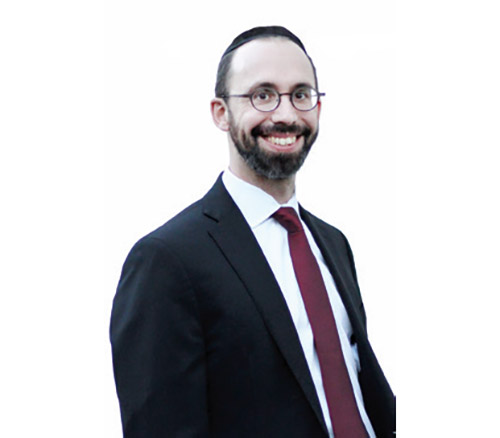
Avi is a young man who had an “I told you so” moment. His parents had warned him, many times, to drive within the speed limit. But finally it happened: he was pulled over by the police, issued a ticket and given a summons to appear in court. Sheepishly, he told his father, who was none too pleased, but kept his cool. “Do you know exactly where to go in court tomorrow?” his father asked. Avi said he would figure it out. “I did warn you about speeding,” said his father. “This will be a good lesson for you. Good luck tomorrow.”
The next day, Avi was waiting in line in court when his father showed up and said to him, “I was thinking about you this morning. I have been to traffic court before and I know this is your first time, so I wanted to make sure you knew where to go and what to say to the prosecutor and the judge.”
They approached the prosecutor, who offered to change the charge to a non-moving violation. This would not put any “points” on his license, but he would have to pay an additional $250. They accepted the offer. The whole episode would cost him a whopping $400, but no points on his license. Avi approached the window to pay the clerk the fine. He thought to himself, “There goes most of the money I made this summer.” But his father surprised him and said, “Here, use my credit card.”
Avi was shocked. He knew his father was upset with him. Certainly, he never expected his father to show up to help him in court, especially not in the middle of a workday. And actually taking care of his fine—amazing! He was very relieved…and touched by his father’s caring and generosity.
On Motzei Shabbos, we will start reciting Selichos, asking Hashem to forgive us for our wrongdoings. The central part of Selichos is the reciting of the 13 attributes of mercy of Hashem, whose recitation requires a minyan (quorum of ten men). The Gemara (Rosh Hashanah 17) tells us anytime klal Yisrael “performs this order,” Hashem will listen to their prayers. The Sefer Reishis Chashma notes that the wording of the Gemara is unusual. It should say “anytime we recite these attributes.” He explains that reciting the words of the 13 attributes is not enough. We all need to act, based on these attributes, with compassion, graciousness, tolerance, patience, kindness, etc., to be judged favorably by Hashem. Hashem promises that if we act on these attribute toward others, He will act toward us in a similar manner.
One of the 13 attributes is “bearing iniquity and sin.” The Gemara tells us that Hashem is tolerant and “maavir al pesha” for those who are tolerant. Rashi defines maavir al pesha as overlooking someone’s faults. If we are tolerant and overlook the faults of others, Hashem will focus on our good qualities.
Even though we know the mitzvos we need to perform, we all have areas where we know we have been lax. By accident, or on purpose, we overstepped our boundaries during the year. Like Avi, we “broke the speed limit.” We want the prosecutor and judge to be compassionate, to offer us a plea bargain on our court date on Rosh Hashanah.
Rav Moshe Cordovero translates maavir as “to cleanse and wash.” Hashem will scrub us clean from our sins. Reb Chaim Volozhin explains that every time we sin we create a damaging force in the world. It’s not something we can see, but it causes damage to the world. Besides obtaining forgiveness for our sins, we need Hashem to help remove these damaging forces. This is Hashem’s attribute of maavir al pesha. Not only does Hashem forgive us, but He even helps clean up the mess we created. Hashem is like Avi’s father, who came down to help his son in court.
When children make a mess, it’s part of a parent’s role to teach them to clean up after themselves. Still, when a parent sees the child is sincerely sorry and needs help cleaning up, he will lovingly help get the job done. We all make mistakes. By imitating Hashem’s divine attributes, we invite Hashem to forgive us as well.
The next time we see a person in a difficult situation, even if they’re at fault, let’s choose the compassionate Godly approach and help them. We can then ask Hashem to act that same way with us. By us acting in a compassionate manner even when someone is at fault, we recognize the mess we sometimes make as well and merit forgiveness from Hashem.
By Rabbi Baruch Bodenheim
Rabbi Baruch Bodenheim is the associate rosh yeshiva of Passaic Torah Institute (PTI)/Yeshiva Ner Boruch. PTI has attracted people from all over northern New Jersey, including Teaneck, Paramus, Rockaway and Fair Lawn. He initiated and continues to lead a multi-level Gemara-learning program. Recently he has spread out beyond PTI to begin a weekly beis midrash program with in-depth chavrusa learning in Livingston, Fort Lee and a monthly group in West Caldwell. His email is [email protected].










